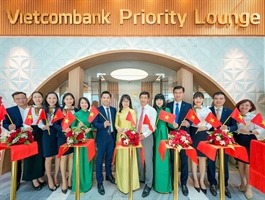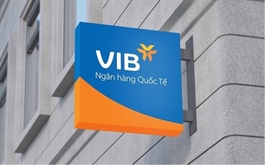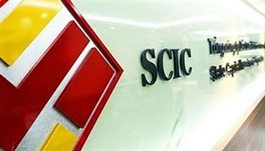Institutional autonomy a key link for IFC ambitions
Institutional autonomy a key link for IFC ambitions
Vietnam’s plans to establish international financial centres (IFCs) in Ho Chi Minh City and the central city of Danang reflect its ambition to become a regional hub for capital, innovation, and financial services. This initiative comes at a pivotal moment, as ASEAN emerges as a new engine of global growth and regional capital flows deepen.
Yet delivering a globally credible IFC is no easy task. In today’s highly competitive financial landscape, success no longer depends solely on incentives or modern infrastructure. Instead, what distinguishes a world-class IFC is the strength of its institutional design – governance that is transparent, predictable, efficient, and fundamentally investor-centric.

Tu Nguyen, associate, Tony Blair Institute for Global Change |
International investors are no longer drawn by location alone. What they seek is confidence: in how decisions are made, how consistently rules are applied, and how swiftly regulatory processes move. They expect empowered institutions that act decisively and deliver seamlessly.
Despite impressive economic gains, Vietnam continues to face institutional bottlenecks. Vietnam still lags behind regional peers in regulatory quality and government effectiveness, according to the World Bank’s latest Business Ready report. Inter-agency fragmentation, slow licensing procedures, and limited institutional responsiveness remain key pain points for investors.
For the IFCs in Ho Chi Minh City and Danang to thrive, Vietnam must break from this pattern. Establishing strong, autonomous governance structures, free from excessive central oversight, is not a luxury but a prerequisite. Institutional autonomy means having independent entities for development and regulation, a truly empowered one-stop shop, and structured international advisory input.
Without these elements, Vietnam risks falling short of investor expectations and missing a generational opportunity to position itself as a serious player in the global finance.
The experience of other successful IFCs offers valuable guidance. Take Dubai’s DIFC, widely recognised as one of the leading financial hubs in the emerging world. It functions as a distinct jurisdiction, with its own commercial legal system grounded in English common law. The organisational structure is built around three distinct and independent entities, each with clear mandates, ensuring functional separation, accountability, and investor confidence. One of the entities, DIFCA, oversees development and licensing, operating with full autonomy and no day-to-day interference from federal ministries.
A second entity operates independently of both DIFCA and the UAE Central Bank and applies internationally benchmarked standards such as IOSCO and Basel. This institutional separation between promotion and regulation is a critical feature of governance that protects market integrity and builds trust.
Other jurisdictions have followed suit. The Abu Dhabi Global Market and the Astana International Financial Centre in Kazakhstan operate under similarly autonomous legal and regulatory structures, offering clarity and investor confidence.
For Vietnam, full legal independence may need to evolve gradually, but there is a compelling first step already embedded in the Politburo’s direction: the creation of a robust one-stop shop. A well-executed one-stop shop is not simply an administrative fix – it is a structural innovation that consolidates all investor-facing functions into a single, empowered authority.
This authority must be entrusted with end-to-end responsibility for business licensing, investment facilitation, and regulatory approvals, especially for non-prudential sectors such as fintech platforms, asset managers, and advisory firms. Equally important is digital transformation: fully online systems for company registration, tax filing, and licensing can dramatically reduce the cost and complexity of doing business.
This approach has already proven effective in IFCs such as Singapore, Dubai, and Abu Dhabi, where integrated digital systems are central to their competitiveness. For Vietnam, adopting such a model is an actionable reform that lays the foundation for deeper autonomy in the future.
Another often overlooked success factor in global IFCs is the integration of international expertise into governance structures. In a rapidly evolving financial landscape, where innovations like AI-driven finance, digital assets, and green bonds redefine market norms, jurisdictions that rely solely on domestic knowledge risk falling behind.
Singapore offers a prime example. The Monetary Authority of Singapore routinely engages international advisory panels composed of global finance, technology, and policy leaders. These panels help Singapore craft forward-looking yet credible policies.
Vietnam should consider establishing a formal International Advisory Board to work alongside the IFC authorities. This board could include seasoned practitioners, regulators, and investors from key markets, providing real-world insight, strategic foresight, and market intelligence. Rather than replace local leadership, such a board would reinforce it, keeping Vietnam’s IFCs aligned with global standards and international capital.
Ultimately, if Vietnam is serious about building world-class IFCs, it must back its ambition with bold governance reform. Institutional autonomy, investor-centric service models, and global engagement are not optional – they are the foundations on which trust and competitiveness are built.
Now is the time to act decisively, signal credibility, and show the world that Vietnam is ready to speak the language of modern finance.
- 08:00 02/05/2025




























